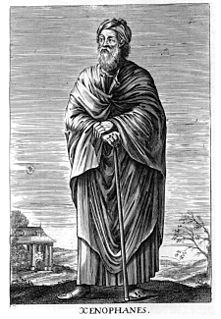A Quote by Friedrich Nietzsche
There is in general good reason to suppose that in several respects the gods could all benefit from instruction by us human beings. We humans are - more humane.
Related Quotes
In the future it's very possible you could have an artificial intelligence system that can run the country better than a human being. Because human beings are naturally selfish. Human beings are naturally after their own interests. We are geared towards pursuing our own desires, but oftentimes, those desires have contrasts to the benefit of society, at large, or against the benefit of the greater good. Whereas, if you have a machine, you will be able to program that machine to, hopefully, benefit the greatest good, and really go after that.
It is an odd fact of evolution that we are the only species on Earth capable of creating science and philosophy. There easily could have been another species with some scientific talent, say that of the average human ten-year-old, but not as much as adult humans have; or one that is better than us at physics but worse at biology; or one that is better than us at everything. If there were such creatures all around us, I think we would be more willing to concede that human scientific intelligence might be limited in certain respects.
Artists use frauds to make human beings seem more wonderful than they really are. Dancers show us human beings who move much more gracefully than human beings really move. Films and books and plays show us people talking much more entertainingly than people really talk, make paltry human enterprises seem important. Singers and musicians show us human beings making sounds far more lovely than human beings really make. Architects give us temples in which something marvelous is obviously going on. Actually, practically nothing is going on.
Interestingly, God's remedy for Elijah's depression was not a refresher course in theology but food and sleep... Before God spoke to him at all, Elijah was fed twice and given a good chance to sleep. Only then, and very gently, did God confront him with his error. This is always God's way. Having made us as human beings, He respects our humanness and treats us with integrity. That is, He treats us true to the truth of who we are. It is human beings and not God who have made spirituality impractical.
There is one god, greatest among gods and men, who bears no similarity to humans either in shape or thought... but humans believe that the gods are born like themselves, and that the gods wear clothes and have bodies like humans and speak in the same way... but if cows and horses or lions had hands or could draw with the hands and manufacture the things humans can make, then horses would draw the forms of gods like horses, cows like cows, and they would make the gods' bodies resemble those which each kind of animal had itself.
The model of the educational Kalila Wa-Dimna. These are books of instruction to rulers and humans. The stories unfold a range of human psychology, a vast range of human psychology. The Sultan is being moved from his narrow and bigoted position into a wider, more subtle, more nuanced understanding of human experiences.







































